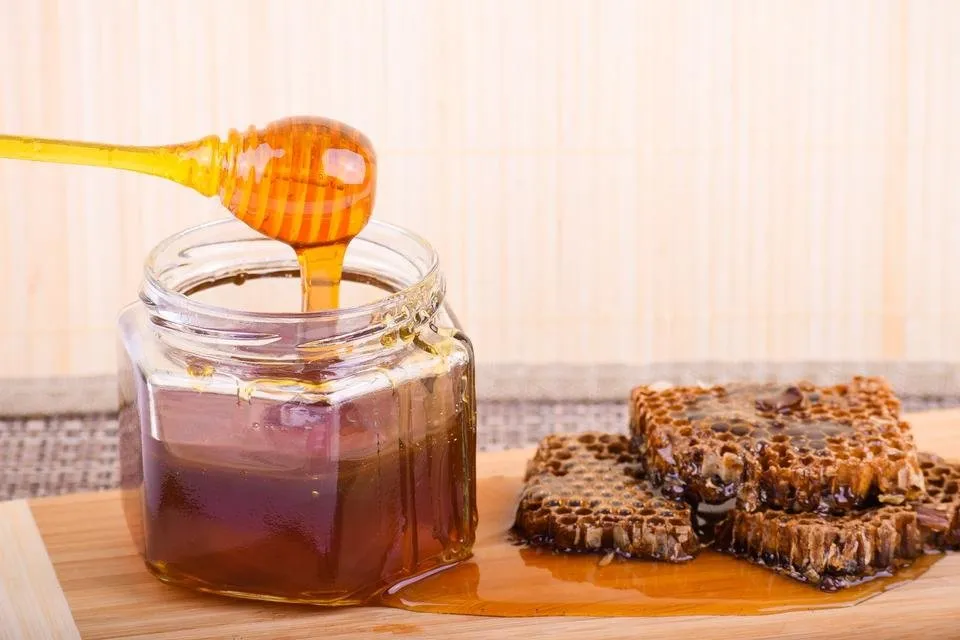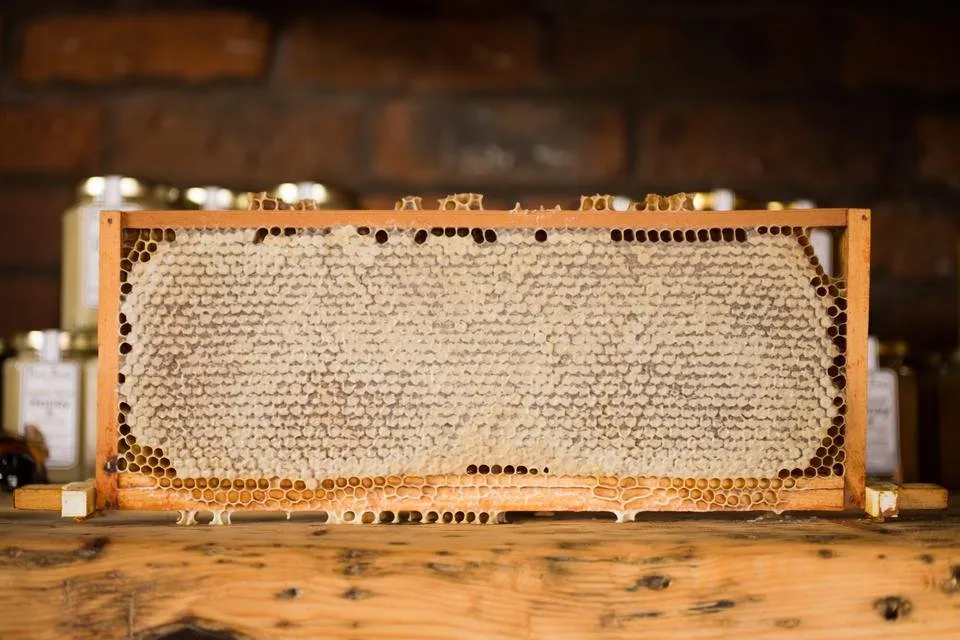 Image by ExplorerBob from Pixabay
Image by ExplorerBob from Pixabay
Local Raw Honey - A Cure for Hay Fever
If you google - local honey a cure for hay fever - nine out of ten of the top websites listed state there is no scientific proof that local honey helps with hay fever.
Honey is thought to be a homeopathic cure for your pollen-related spring woes. No. The myth is that local pollen in honey can desensitise the allergic reaction, but there's no evidence to support it. ... The pollen in honey is nearly all the heavy, flower pollen that doesn't cause hay fever.
From top google search result - www.sciencefocus.com
Really?... during the summer of 1994 my chronic hay fever disappeared after a course of local honey. I started taking it in the autumn and winter of 1993, slowly increasing my daily intake to one teaspoon of local honey/day, continuing with a teaspoon/day right through the spring of 1994.
Was this a placebo? Possibly, it is impossible to rule it out; but the same miraculous cure occurred in 2005 when I followed the same treatment with local honey because my hay fever had returned. That's a grand total of ten years with no noticeable symptoms of hay fever each summer from the initial treatment. After my course of local honey in 2004/2005, my hay fever disappeared again and has only started to return (mildly) this summer.
Let’s take a look at the accepted folk wisdom around this natural remedy.
Local raw honey can be used as a form of homeopathy to desensitize yourself to local pollen from which the honey was produced. Take a small amount each day before the start of hay fever season, gradually building to a teaspoon or more. To improve effectiveness, continue throughout spring and summer. To put it simply, it is believed that you acclimatize your system to the pollen in your local area. The allergen pollen particles act like an immunization, slowly building up and allowing the immune system to effectively counter the symptoms.
The pollen in honey is
nearly allthe heavy, flower pollen that doesn't cause hay fever.
Taken from the highlighted top website - www.sciencefocus.com
The choice of language here is interesting. Nearly all would suggest that the research study found that there is an amount of the smaller pollen particles in local honey that cause the allergic 'hay fever' reaction. As with so many articles from these types of scientific websites, the strong tone and intimations discourages people from trying a natural remedy that has little chance of any adverse effect. I personally think that the strong stance that these types of publication take against natural remedies that are harmless is the result of global pharma's strangle hold over the medical research community...
Show me the money honey!
The only potential risk with a course of local honey that I can see is an increased possibility of developing diabetes in people with a genetic disposition. Even in this unlikely circumstance, I would argue that the western diet, high in carbohydrate/sugar could be the major contributor.
The role of diet in the etiology of T2DM was proposed by Indians as mentioned earlier, who observed that the disease was almost confined to rich people who consumed oil, flour, and sugar in excessive amounts.
Scientific research paper - Effect of diet on type 2 diabetes mellitus: A review
During that first course of local honey my mother wouldn't allow me any sweets and limited my intake of processed foods. The second time I took local honey I was in university and lived on pizza, ramen and beer 😂 Even then it still helped me clear the hay fever without any adverse affects apart from a slightly stuffy nose during the treatment phase.
The American Heart Association (AHA) recommends that women get no more than 100 calories a day from added sugars and men no more than 150 calories a day. This is equal to a little over two tablespoons for women and three tablespoons for men.
Quote from https://www.medicalnewstoday.com
As you can see, if you eat a varied, low sugar diet it is completely safe - from a medical stand point - to follow a local honey course of treatment.
 Photo by Jonathan Farber on Unsplash
Photo by Jonathan Farber on Unsplash
Honey as Medicine
Honey is the most bio-available sweetener in the natural world. As is being increasingly recognized, a diet high in natural unprocessed foods is the healthiest option. It follows that as we have been eating honey throughout our evolution, our physiology will be much better adapted to digesting it.
Cave paintings show that around 8,000 years ago, honey was first being used by humans, although there was no evidence of humans keeping and cultivating colonies of bees until 2,400 BC.
Quote from https://www.medicalnewstoday.com
The recorded history of honey being used as medicine goes as far back as the ancient Egyptians who used it as an embalming fluid and a dressing for wounds.
In traditional Ayurvedic medicine honey has been used for millennia as an effective treatment for indigestion and to help with a wide range of diverse symptoms such as; soothing eye diseases, coughs, thirst, phlegm, hiccups, blood in vomit, leprosy, diabetes, obesity, worm infestation, vomiting, asthma, diarrhea and in the healing of wounds.
 Photo by Manyu Varma on Unsplas
Photo by Manyu Varma on Unsplas
An Awakening to the Body's Power to Heal
This experience in effectively treating hay fever with local raw honey taught me that the body has an immense power to heal. Sometimes medicines from doctors achieve this, but when taking your health into your own hands, modern science can be extremely dogmatic due to outside factors (the industry surrounding medicine).
For me, it is important to weigh everything I read, am told or sold by doctors as none of the many treatments I have undergone has helped me heal my SIBO. Also, when considering natural treatments the same factors should be taken into account as when considering a pharmaceutical medicine.
Is there any risks with the treatment?
Does the evidence show many cases of curing or relieving symptoms or any negative reactions?
All of these factors are important. At the end of the day, as with a treatment like local honey, if there are no inherent risks... why wouldn't you try it?








